When you've been dubbed the "Bruce Lee of Drumming" by a heavy metal and hardcore luminary, you're doing something right. The man being compared to a martial arts legend is drummer Kenneth Schalk. He's truly a master of his craft, recording and touring as one of the most dynamic and innovative drummers for over three decades, notably with the bands Candiria and Fuel. No other percussionist can lay claim to melding the styles of extreme metal, jazz, funk, and hip-hop as exceptionally as Schalk.
With all that being said, the inspirational artist is criminally underrated in the grand spectrum of drumming. He's hardly mentioned on Top Drummer lists, and his social media analytics don't turn heads. Meanwhile, his flamboyant visual display of striking drum kits hypnotizes audiences, garnering attention from even the farthest spectator. At times, you'd swear you're watching a player with four arms and with arresting fluidity.
So, where's the love for Ken "Bruce Lee" Schalk?
Firstly, Schalk recalls which metal and hardcore icon bestowed such a prestigious moniker upon him. "There's this dude in Venice (California) whose name is Josh (Klassman). They call him 'Bagel'; he's mostly been in the business of stage managing, but he's an amazing photographer, has been in the Venice scene forever, knows everyone—skating, music, whatever—and knows Rob Trujillo (bassist: Metallica, Suicidal Tendencies)," he begins. "This was years ago, when I moved out here in, like, '06-'07, and he told me he was hanging out with Rob one night and told him that he was with me, and Rob says, 'Oh, you're with Kenny Schalk?! That dude's the Bruce Lee of drumming!' That's probably the coolest compliment I've ever gotten."
Schalk's balanced yet violent drumming style results from his finely tuned philosophy of "Ergo-drumming," which is short for "Ergonomic-drumming." His online handle is mostly conveyed as the "Ergo-drummer."
"It started more in the corporate workspace, as buildings started to get erected more—more office spaces, more people working behind desks," begins the drummer on the origins of ergonomics. "In general terms, ergonomics is an efficiency of, in this case, the body, its physics, motion, balance, and centeredness. It's all based on being able to work as efficiently as possible. As a drummer, it's not just about whimsically flailing around and hurting yourself; it has to be done in stages, through a knowledge of what's controllable first, and you have to hone it and do it properly in a way that makes sense and is—the basic keyword—efficient."
His coordinated method, although focusing mainly on efficiency, still leaves room for improvisation and creativity. And Schalk is well-known for setting down some of music history’s most memorable and colorful drum sections.
"Dynamics in drumming, which also happens with other instruments, are a big part of how we move our body. If you want a more fluid, diverse, or unending idea for being dynamic as a drummer, then it's important to gain some kind of personal dance with yourself," the master explains.
Inspiration for creating such an intriguing style struck early in Schalk via one of his instructors, coming up in New York City. "I had an amazing drum teacher. He was technically ridiculous but also like a rock star guy, a real showman and everything. His name was Peter Pizzi," begins the pupil. "He lived in Staten Island and was in a band called Mercury in the mid-'80s. They never really went anywhere, but they played L'amour quite a lot, so they had their moment in the local NY scene. But he made a lot more money in dentistry, lecturing, and stuff like that."
Schalk continues on his early lessons from Pizzi: "We were talking about when I was getting to do my first live performance in high school. He was telling me, 'You gotta remember: if you want to be a performer, then you have to be considerate of the fact that as people get farther away from you, you look smaller and smaller, so your movement is very important.'" He elaborates, "If you're hitting a cymbal, it's not about trying to be strong—that's where the whole efficiency thing came from—you need to have a very fluid and relaxed motion but still have a big motion. So, when you hit the crash cymbal, they want to see your arm come all the way up and down."
"From that early point on and all the way through, I was about building that ability—to find a way to get more efficient so that I can hit the drums hard but not swing hard. It's all physics-based, utilizing acceleration of velocity. It's about a lot of motion taking energy from the center of your body, your core," Schalk adds then also credits the Moeller drumming technique. "It's a fluid, circular feel, so things move like a wave. I take that concept, which is a drum stroke concept, and I incorporate it into my entire body."
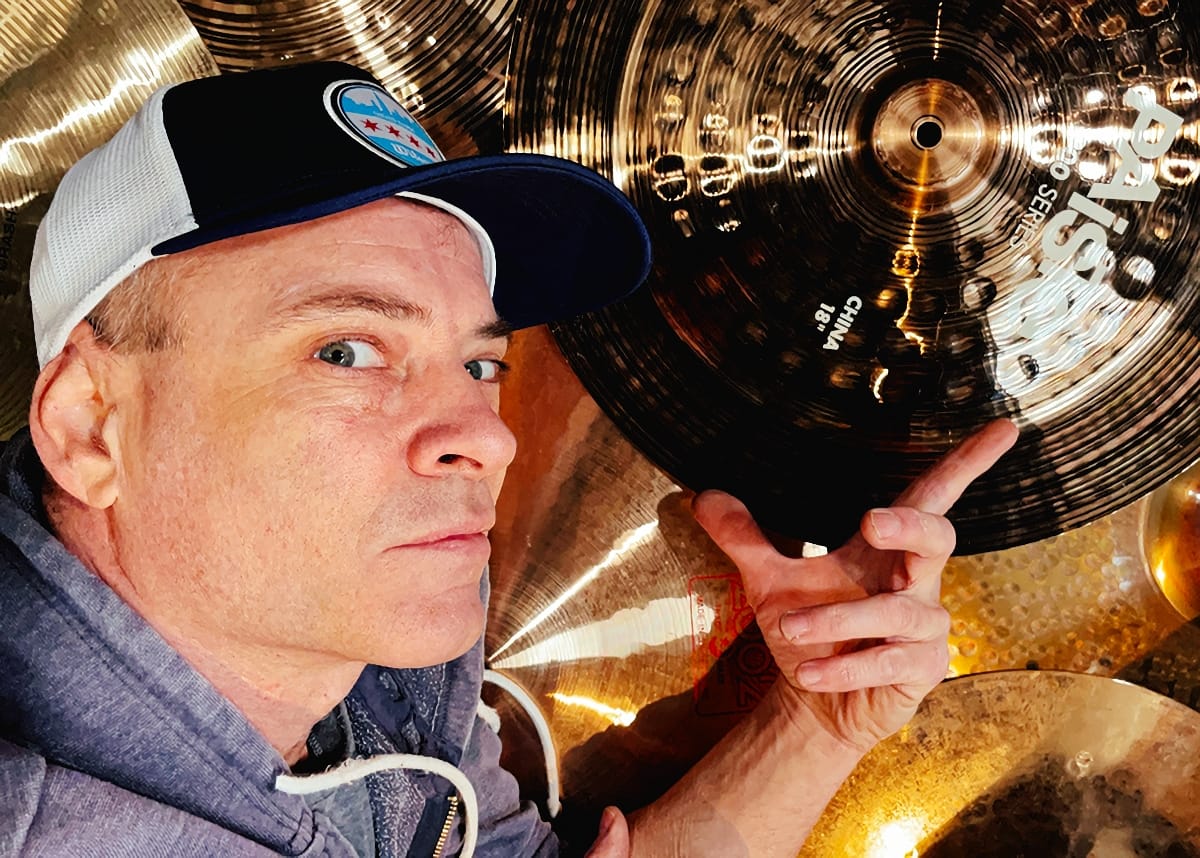
Without a doubt, Ken Schalk had his most groundbreaking performances behind the kit while drumming for Candiria. The Brooklyn-based multi-genre metal band was a perplexing amalgamation of metal, jazz, funk, and hip-hop elements. They were unlike anything anybody had heard and captured fans’ imaginations worldwide. "My whole experience with Candiria was the greatest musical experience I'll ever have in my lifetime. Being in Fuel for a few years was awesome, too, but Candiria was the main thing. That was the true pursuit of becoming an international touring act, and we did it.”
It was his diverse influences, though, that significantly shaped the band's vision. "It was an evolving philosophy. Candiria, in its foundation, was a death metal band," he begins. "They were like, ‘Nah, man, we want to be a technical death metal band.' I was like, you guys really wanna be technical?" He chuckles while reminiscing: "We hit it off immediately. I was like, when you guys say 'technical,' do you mean because you're playing solos, or do you guys really wanna get into some crazy shit?"
When the band opened the door for Schalk's mad scientific input, magic occurred. "So, I started showing them all types of different jazz fusion. We weren't trying to write jazz fusion, but we were trying to take the idea of moving into odd time signatures, writing riffs that weren't in 4/4, trying to get syncopated, to start challenging our minds musically and rhythmically."
In regards specifically to Candiria's revamped songwriting gear, Schalk reveals, "We had to contemplate doing some kind of transitional element as an addition, or just writing a different riff instead of going back to a verse, and that was what spawned the whole concept of writing 'chapters.' That became our artistic philosophy: the challenge of songwriting would be the combination of utilizing progressive, technical ideas rhythmically with odd time signatures, crazy transitional elements, and expanding a song without repeating parts. It worked out well for a few albums, but eventually, we were like, you know, if we don't step away from that, we're gonna burn out badly and become a parody of ourselves."
Schalk pounded the skins for Candiria from the early '90s into the 2010s, leaving the band and moving to the West Coast. The band is currently active, but Schalk left such a prominent mark through his work with the avant-garde pioneers. He then contributed his services to the wider-known act Fuel, a more straightforward hard rock outfit, for a handful of years.
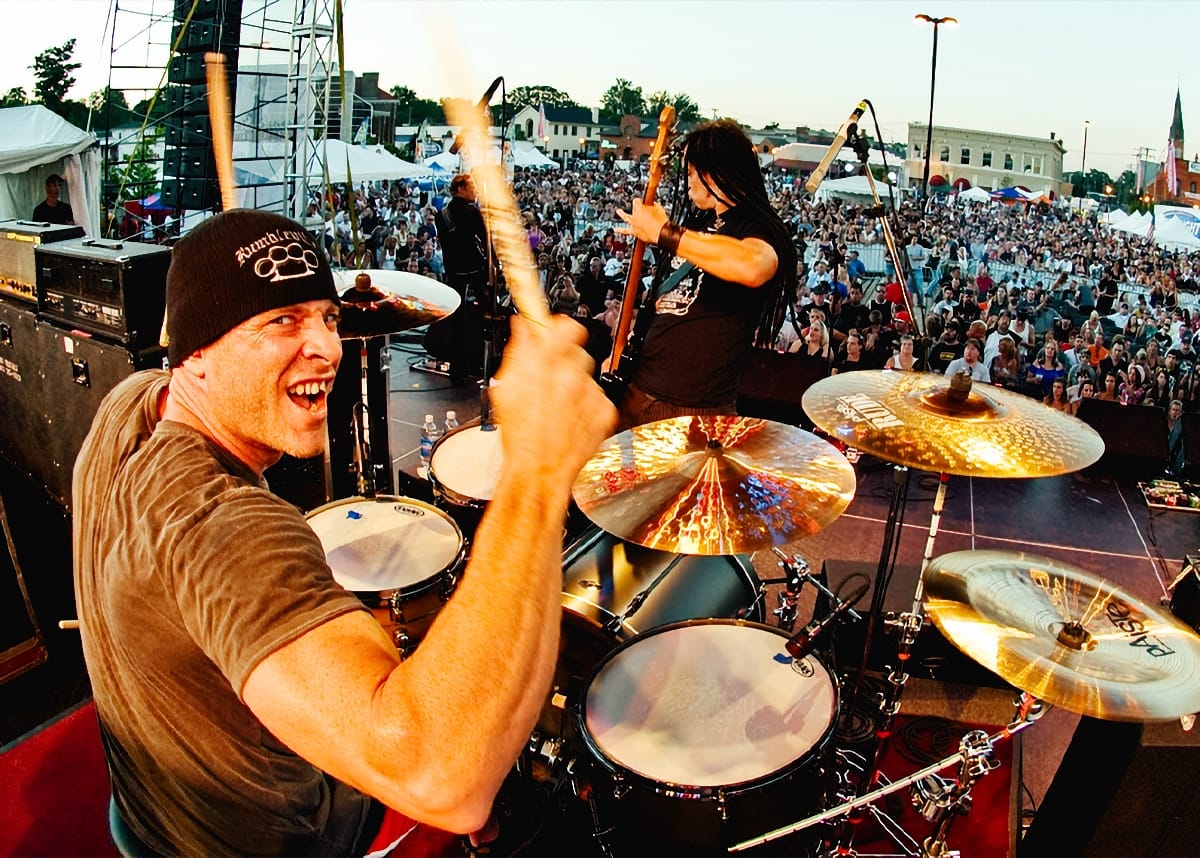
The phenomenal percussionist has since become a multi-faceted drumming content creator along with accepting commissions for session work and lessons. Following a smirk, Schalk comments on his recent activities: "Balance wouldn't be a good word; it's a cornucopia piled into one driving force. Right now, though, the main thing is my business partner and I started the (sampled audio) company $10 SHOTS, and we're gonna start putting out more products."
However, with such an incredible resume, oodles of inspirational material, and an ongoing artistic journey, Ken Schalk doesn't appear to move the needle in conjunction with his accolades. It's frustrating to witness other drummers get flooded with awareness while their content is nowhere near as entertaining and educational as his.
As expected, he humbly comments on this matter, "If I were able to put out the amount of content conceived in my head, it would hit the algorithms harder. I could do promos and spend money on that stuff, too, but there's a give-and-take. I think they want you to play the game financially, so, right now, I take my time and watch natural growth."
"I think, at the end of the day, engagement is generally, what I would consider, bad for a lot of people who will overly promote themselves for the sake of getting a follower boost like they're 'important.' That's very damaging to your integrity."
Nonetheless, Ken Schalk is a success by many definitions of the term. He doesn't shy away from discussing his legacy as a drummer either, describing himself as "One of the hardest hitting, and I hate that term because I don't hit the drums hard; what I do is I smack the shit out of them. I want to play like I'm all rubbery and stuff, like those inflatable tube men."
As only the unorthodox Ken Schalk can surmise, "I'm the 'Bruce Lee' and the 'Inflatable Tube Man' of drumming."
Check out Ken Schalk's excellent and educational 'Ergo-Drummer' YouTube channel and follow him on Instagram and Facebook.
Check out more like this:
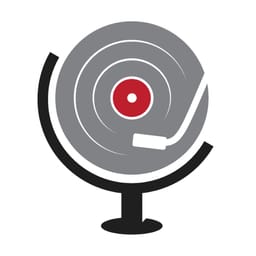 The TonearmLawrence Peryer
The TonearmLawrence Peryer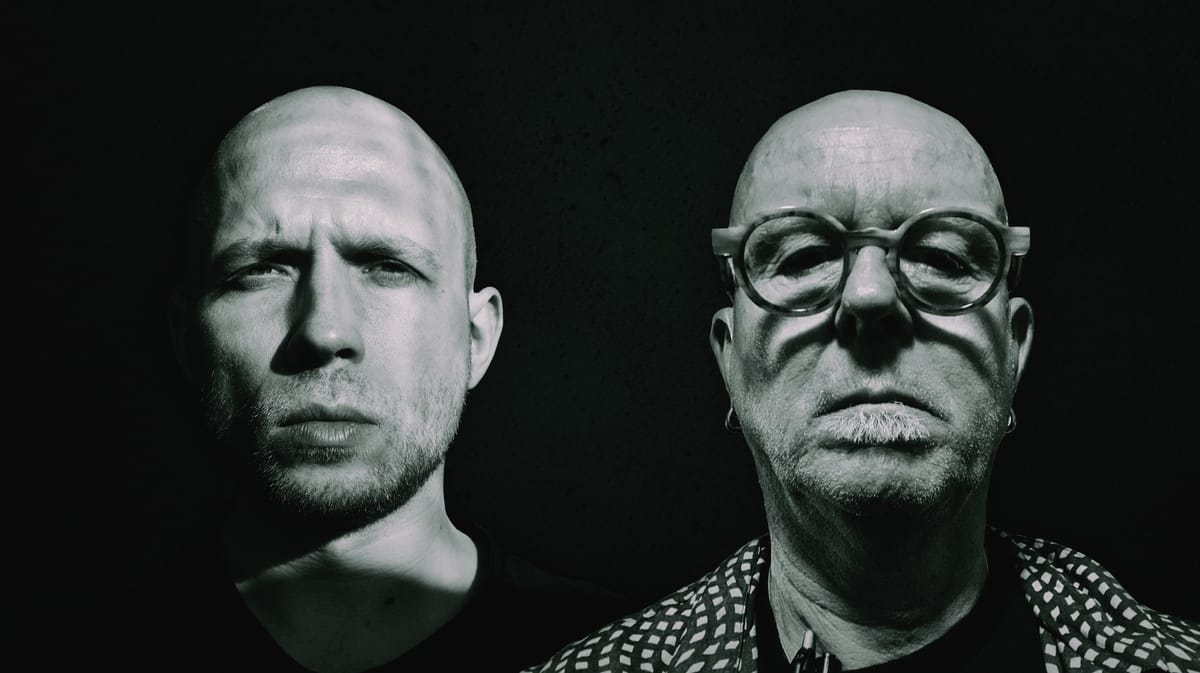
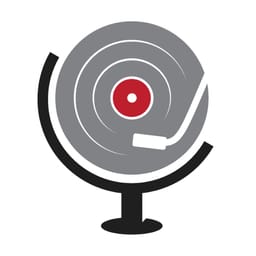 The TonearmLawrence Peryer
The TonearmLawrence Peryer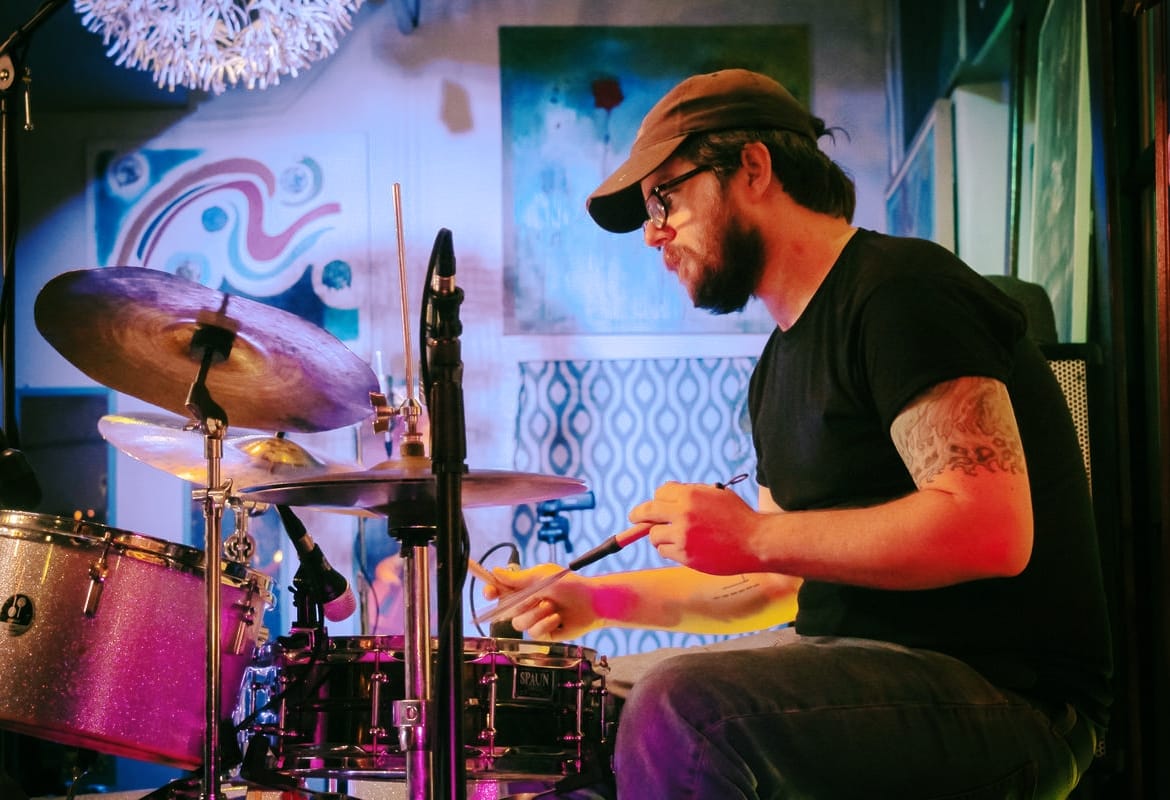


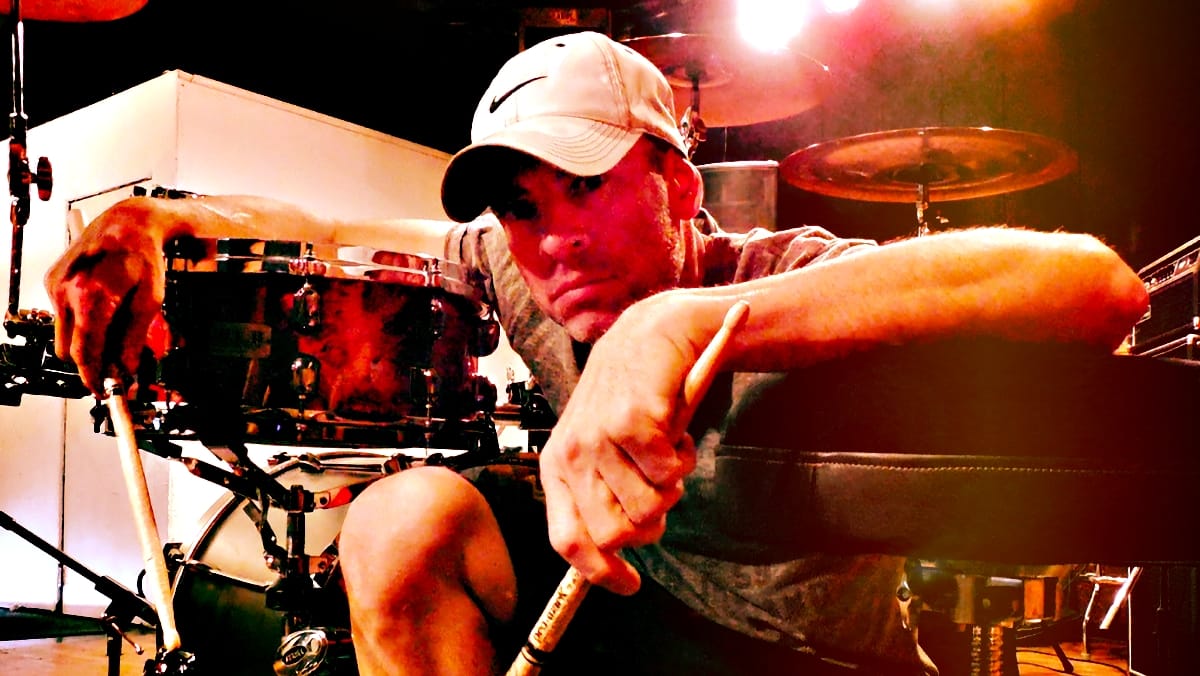
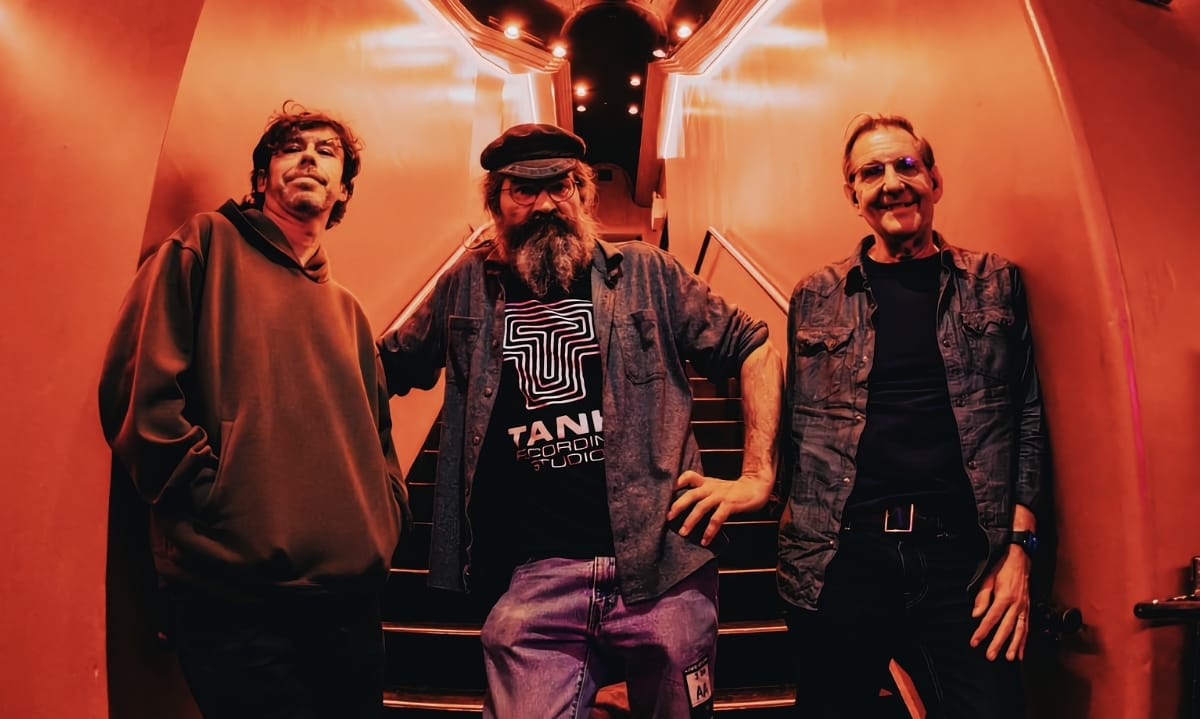

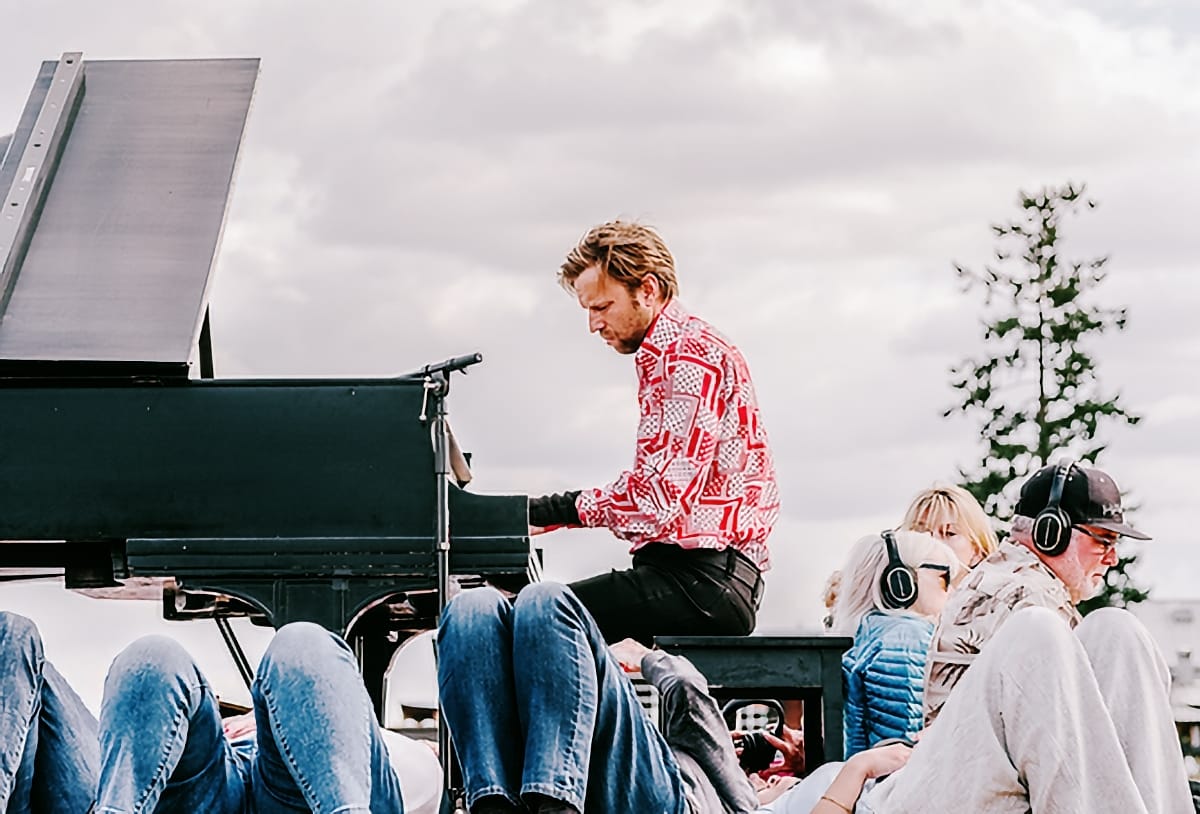
Comments